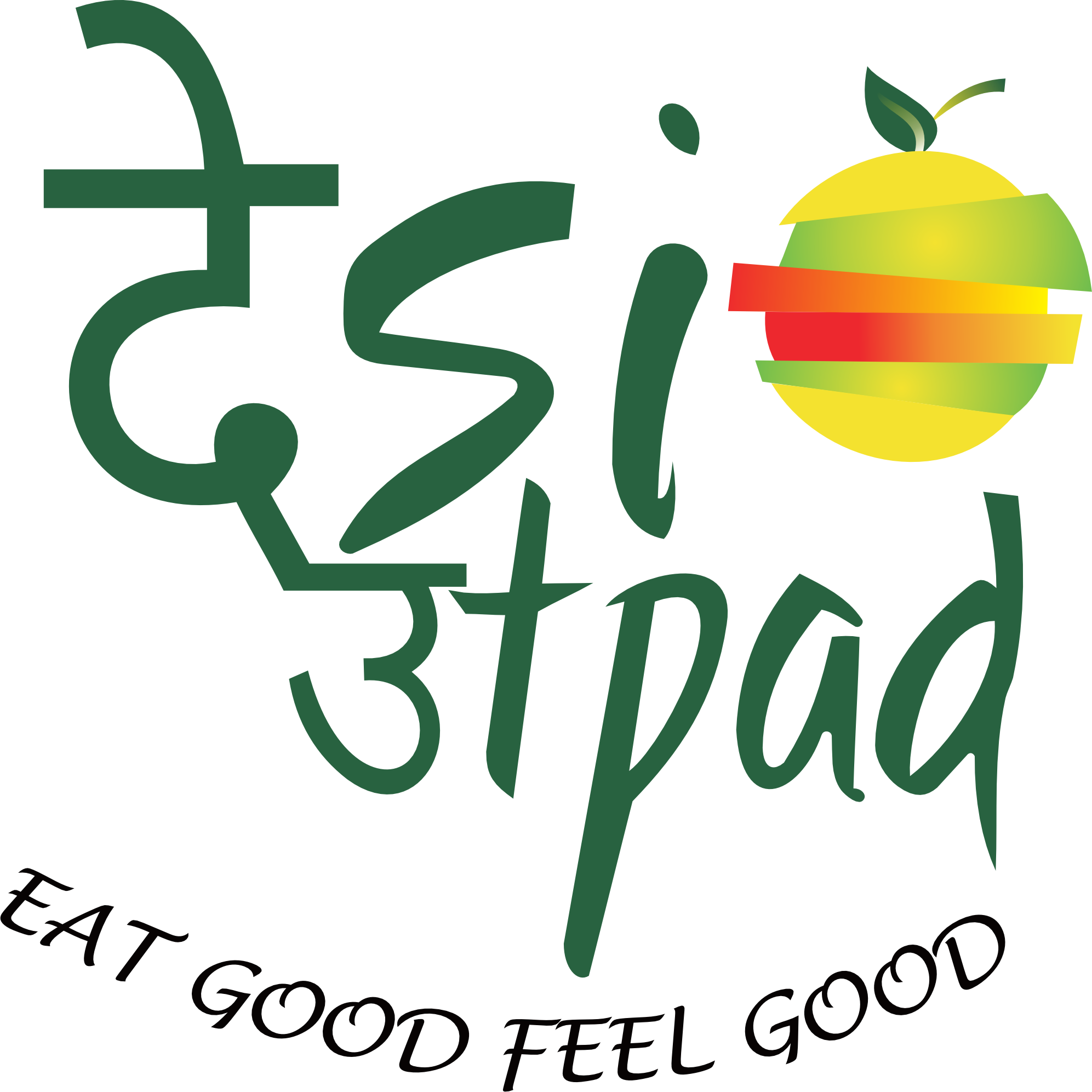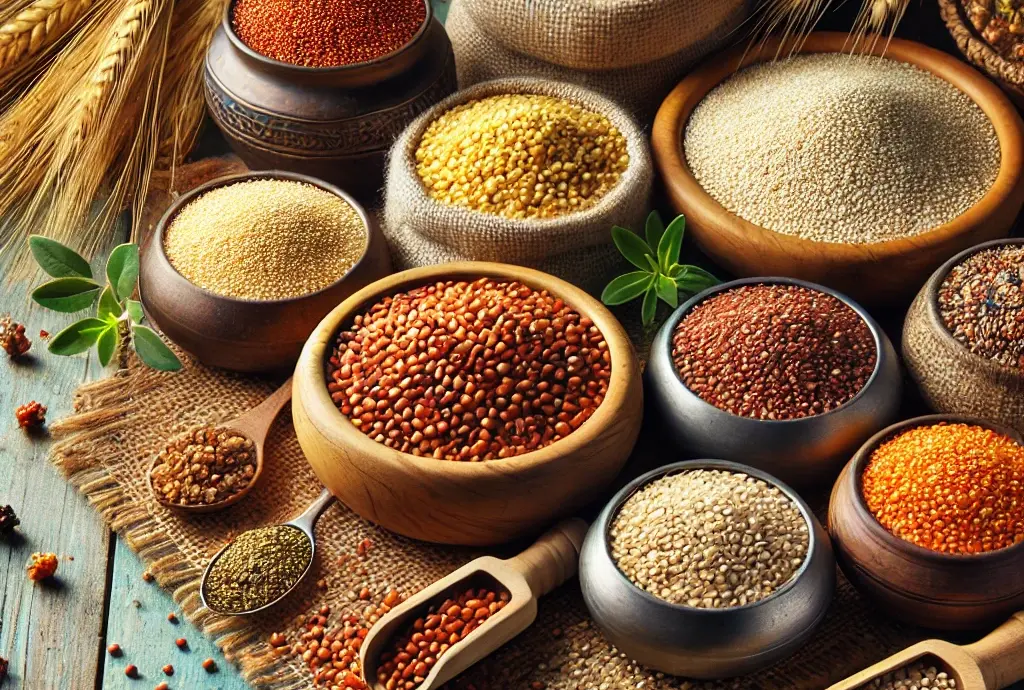In today’s fast-paced world, where convenience often trumps nutrition, we’re seeing a rise in processed foods and artificial additives. But as we look back to the wisdom of our ancestors, we realize that the true key to a healthy life lies in the simplicity of traditional foods. One of the most powerful ways to improve our health is by embracing ancient grains—those nutrient-dense foods that have been an integral part of India’s agricultural heritage for centuries.
At Desi Utpad, we believe in reviving these ancient grains to not only preserve our cultural heritage but also to provide you with a healthier and more sustainable way of living. In this blog, we explore the incredible health benefits of ancient grains and why you should incorporate them into your daily diet.
What Are Ancient Grains?
Ancient grains are varieties of grains that have been largely unchanged over the past several hundred years. Unlike modern wheat and other grains, these grains have not been genetically modified or heavily processed. Some of the most popular ancient grains in India include:
- Millets (Bajra, Jowar, Ragi)
- Amaranth (Rajgira)
- Quinoa
- Barley (Jau)
- Buckwheat (Kuttu)
These grains are not only a source of essential nutrients but also come with rich stories of tradition and resilience. They thrive in diverse climates and often require fewer inputs than modern crops, making them more sustainable and eco-friendly.
Why Choose Ancient Grains?
- Rich in Nutrients
Ancient grains are naturally packed with vital nutrients, including fiber, protein, vitamins, and minerals. For example, Millets are high in iron, calcium, and B-vitamins, while Amaranth offers an excellent source of protein and amino acids. Including these grains in your diet can support overall health, boost immunity, and improve digestion. - Good for Gut Health
One of the key benefits of ancient grains is their high fiber content. Fiber is essential for maintaining digestive health, and it can help prevent constipation, regulate blood sugar, and promote a healthy gut microbiome. Millets, particularly Ragi (Finger Millet), are a great source of soluble fiber, which aids in better digestion and gut function. - Low Glycemic Index
Ancient grains tend to have a lower glycemic index (GI) than refined grains. This means they are digested slowly, leading to stable blood sugar levels and longer-lasting energy. They are an ideal choice for people with diabetes or those looking to manage their weight effectively. - Gluten-Free Options
Many ancient grains like Quinoa, Amaranth, and Buckwheat are naturally gluten-free, making them an excellent choice for individuals with gluten sensitivity or celiac disease. These grains provide an alternative to traditional wheat-based products and are full of essential nutrients. - Sustainable and Eco-Friendly
Unlike industrial crops that demand heavy irrigation, pesticides, and fertilizers, ancient grains are often grown with minimal input, making them more environmentally friendly. By choosing these grains, you’re contributing to the support of small-scale farmers and sustainable agricultural practices.
How to Incorporate Ancient Grains into Your Diet?
Incorporating ancient grains into your meals can be simple and delicious. Here are some ideas:
- Start Your Day with a Millet Porridge
A warm millet porridge is a perfect breakfast choice. Top it with seasonal fruits, nuts, and a drizzle of honey for a nutritious start to your day. - Add Quinoa to Your Salads
Quinoa is a versatile grain that can be used as a base for salads. Its nutty flavor pairs well with fresh vegetables and can be dressed with olive oil, lemon, and herbs. - Swap Wheat for Amaranth Flour
Use Amaranth flour for baking gluten-free breads, muffins, and pancakes. Amaranth has a slightly nutty flavor and adds a protein boost to your baked goods. - Millet Rotis or Parathas
You can easily swap regular wheat flour with Millet flour (such as Bajra or Jowar) to make rotis or parathas. These are perfect for a wholesome, fiber-rich meal. - Buckwheat Pancakes
Make gluten-free pancakes using Buckwheat flour. Add some fruits and a sprinkle of cinnamon for a healthy breakfast treat.
Why Choose Desi Utpad’s Ancient Grains?
At Desi Utpad, we take pride in bringing you the finest quality ancient grains sourced from local, sustainable farms across India. Our grains are carefully selected, ensuring that you get the purest and most authentic products. By choosing Desi Utpad, you are not only nourishing your body but also supporting a movement towards healthier, sustainable, and culturally rich eating habits.
Incorporating ancient grains into your diet is more than just a trend; it’s a return to our roots. These grains are packed with nutrients, easy to digest, and incredibly versatile. By choosing Desi Utpad, you’re not only choosing better health for yourself but also supporting a larger movement towards sustainable and community-driven agriculture.
Customer Testimonials
Suman Reddy, Hyderabad:
“I’ve recently started incorporating more millets into my diet, and I feel amazing! Desi Utpad’s millet range is of the highest quality. My energy levels are up, and I’ve even noticed improvements in my digestion.”
Rajiv Kapoor, Gurgaon:
“Desi Utpad’s Amaranth flour is fantastic! I’ve made pancakes and bread with it, and the taste is just amazing. I love knowing I’m getting a natural, healthy alternative to processed foods.”
Join the Ancient Grains Revolution
Desi Utpad is proud to offer you a variety of ancient grains that can become a part of your daily diet. Embrace the health benefits, the taste, and the sustainability that these grains bring. Here’s how you can make them a part of your lifestyle:
- Shop Online: Browse our collection of ancient grains and place your order with ease.
- Experiment with Recipes: Explore new ways to incorporate these grains into your meals. We’ve got plenty of inspiration on our social media and blog.
- Support Local Farmers: Every purchase you make contributes to empowering Indian farmers and promoting sustainable agriculture.
Start your journey to better health with Desi Utpad—where tradition meets nutrition in every grain!

